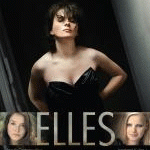articles récents
CHAMPAGNE DEUTZ: un champagne digne des plus grands - Au Royaume-Uni, le champagne Deutz est considéré comme un des...
Où fêter le 14 juillet à Londres - Pour le 14 juillet, bien des bars et restaurants londoniens ont...
Comment choisir un dentiste à Londres - Comment choisir son dentiste à Londres quand le choix est si vaste?
Les Brioches de Noël Pasquier enfin en vente à Londres - Les fêtes de fin d’année offrent un large choix de produits...
MAGAZINE
-
 Culture
Culture
-
 Decoration
Decoration
-
 Droit
Droit
-
 Education
Education
-
 Emploi
Emploi
-
 Enfants
Enfants
-
 Gourmet
Gourmet
-
 Immobilier
Immobilier
-
 Life and Style
Life and Style
-
 Mode
Mode
-
 Politique/Economie
Politique/Economie
-
 Sante
Sante
-
 Sport
Sport
-
 Vacances
Vacances
Device converter
Weather
Annonces
- Maison A Louer - a deux pas du Lycee LIL
- Tax Return MN | Prudent Accountants
- Appartement 4 pieces a louer
- Agent de football à la recherche de joueurs talentueux
Déposez une annonce sur ce site
Ajoutés récemment
articles > Culture events

Critique du Film ELLES avec Juliette Binoche
Just like the eponymous publication, ELLES is a feminist film made by women for women. Under the pretext of looking into the growing phenomenon of student prostitution, this provocative Franco-Polish production explores female sexuality from a voyeuristic perspective.
PLOT:
 Contrary to what the title suggests, ELLES is much more of a one woman show; an unsettling journey into the life of a (sexually) frustrated middle-aged woman. As she turns to reflect on her own life the subjects of her study, students Charlotte (Anais Demoustier) and Alicja (Joanna Kulig), take a back seat, appearing only in the leading lady’s flashbacks.
Contrary to what the title suggests, ELLES is much more of a one woman show; an unsettling journey into the life of a (sexually) frustrated middle-aged woman. As she turns to reflect on her own life the subjects of her study, students Charlotte (Anais Demoustier) and Alicja (Joanna Kulig), take a back seat, appearing only in the leading lady’s flashbacks.
Anne (Juliette Binoche) is an educated and wealthy Parisian who works as a journalist for ELLE magazine. As the deadline for her latest project - a piece about student prostitution - draws near, the bourgeois correspondent relives the intimate experiences of the two young sex-workers she has been interviewing. What started off as just another assignment turns personal, and Anne is forced to confront her own sexual desires and fears.
Disturbed by the noises on the street while she is working from home, overwhelmed by her eldest son’s teenage defiance, the lack of structure for her youngest, and her husband’s slackness, Anne struggles to see how easy she has it.
 She meets Alicja, a voluptuous foreign student who is driven to sell her body for sex when she realises she cannot afford to live in Paris, and Charlotte, a fresh-faced French girl from a stable but achingly boring background. The contrast between them however is clear: the first lives in a hotel room, drinks Vodka throughout the day and swears like a sailor; the second has a boyfriend, a caring family and a fierce desire to climb the social ladder. Whereas Alicja embodies the public stereotype of the modern prostitute, Charlotte has consciously chosen to make the world’s oldest profession her own. And Anne finds them to be everything she is not: fiercely independent and sexually liberated, so much so in fact that she seems to envy their choice.
She meets Alicja, a voluptuous foreign student who is driven to sell her body for sex when she realises she cannot afford to live in Paris, and Charlotte, a fresh-faced French girl from a stable but achingly boring background. The contrast between them however is clear: the first lives in a hotel room, drinks Vodka throughout the day and swears like a sailor; the second has a boyfriend, a caring family and a fierce desire to climb the social ladder. Whereas Alicja embodies the public stereotype of the modern prostitute, Charlotte has consciously chosen to make the world’s oldest profession her own. And Anne finds them to be everything she is not: fiercely independent and sexually liberated, so much so in fact that she seems to envy their choice.
A JOB LIKE ANY OTHER?
Drawing her inspiration from Virginia Woolf’s Mrs Dalloway, Tine Byrckel (the screenwriter) centres the story around one day in the life of an ordinary woman. The idea is to create a contrast between Anne’s mundane daily tasks, which seem unbearable to her at times, and the working conditions of her two new friends, which seem unbearable to us. But the girls claim to be in control, and even to enjoy the sensation of power and sexual liberation that their positions offer.
 The highs and lows of life as a sex worker are pretty much brushed aside as the girls adopt a matter-of-fact attitude (“It’s like smoking. It’s hard to quit”). The film rejects the idea that all prostitutes are dirty, grimy, and unambitious victims of the system. It is a job like any other, with good days and bad.
The highs and lows of life as a sex worker are pretty much brushed aside as the girls adopt a matter-of-fact attitude (“It’s like smoking. It’s hard to quit”). The film rejects the idea that all prostitutes are dirty, grimy, and unambitious victims of the system. It is a job like any other, with good days and bad.
And despite her loaded questions about the sexual act in itself (“it’s humiliating, right?”, “it must have been hard at first, no?”), and preconceived ideas about who the men who pay for sex really are, Anne is the one who finds herself endangered by the revelations.
In a world where sex is everywhere, especially in the pages of female magazines such as ELLE, why are real women who choose to become sex objects to fulfil their own consumer desires met with such moral disapproval? Expect three engaging performances delivering this message, but an unduly voyeuristic work overall, that adds little to the existing debate.
Zone Tag
Ustensiles de cuisine, kings place, 1973, yaourt, Distributeurs de marques françaises, vin, film, Charlotte Gainsbourg, Enfants, echange, gauche, livre, Bledina, Cabecou, londres, traductions, Immobilier, ricard, folmule 1, londres, film, London Fashion Week, Tom McCarthy, soutien gorge sportif,



LAISSER UN COMMENTAIRE